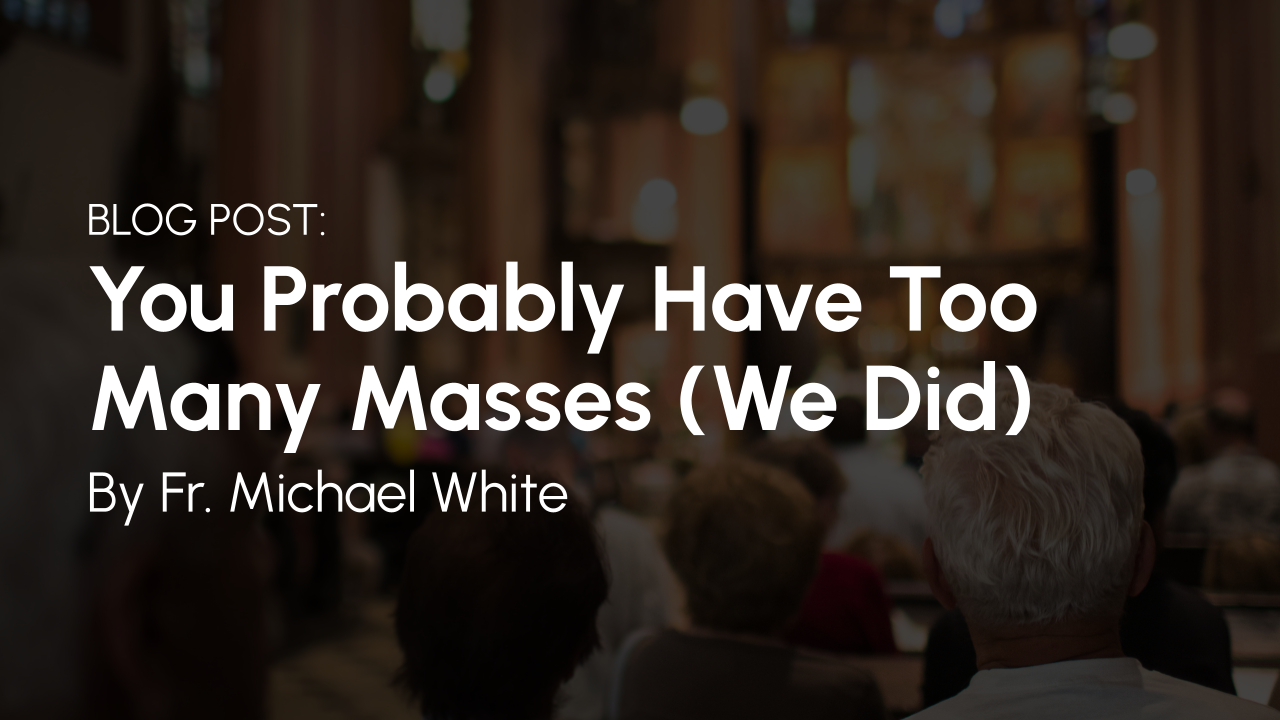You Probably Have Too Many Masses (we did)
May 31, 2023
I was speaking to a bishop recently who was telling me about an experience he had at an area parish. He received a call on a Saturday afternoon from the pastor requesting weekend Mass coverage as he was being called away on an urgent family matter. Not having other obligations that weekend the bishop agreed to take care of the Masses himself.
There were two Saturday Vigil Masses and three Sunday morning Masses. The first Mass of the weekend was nowhere near half full. The second largely empty. This was also his experience the next day: the early and late Masses were ghost towns, the middle one, the largest of the weekend, was just about half full. Checking in with the pastor later, the bishop questioned him about this experience. The pastor assured him that such attendance patterns were entirely consistent for the parish. When asked why he would perpetuate such a schedule since, arguably, everyone coming to church could be accommodated at a single Mass, the pastor’s didn’t hesitate. “It’s the schedule we’ve always had. It’s what the people want.”
When I first came to Nativity we had six weekend Masses, two on Saturday evening and four on Sunday morning/early afternoon. Three of the Masses were fairly well attendant, the others were not. My eventual move? I added two more Masses! My rationale was that more Masses would attract more people, which inevitably it did (in a modest way), because whenever you add a Mass someone will show up. But the numbers hardly justified the effort and expense and the schedule was unsustainable.
Behind this kind of crazy multiplication of Masses at so many Catholic parishes is the prevalence of a consumer mentality. I know a nearby parish where the pastor canceled an early morning “quiet” Mass because it only attracted a hundred or so parishioners (in a church that seats 1,500). The ensuing outcry from the regulars at the “golfer’s Mass” nearly tore the parish apart. This is consumerism, plain and simple: “I want what I want when I want it.”
Of course, a proliferation of Masses is going to cost you something in terms of time and money, perhaps an expense the parish can ill afford. And, at this point in most places, the question of “coverage,” actually getting enough priests to say the Masses, can be a problem.
But more than anything, it is the consumer culture that many unnecessary Masses promote. Consumers will never grow as disciples, they’ll stay stuck at the starting gate. This, in turn, erodes fellowship and probably giving too.
In part, we built our new church, which seats 1,500, to reduce the number of weekend Masses. We currently have three and they are all well attended. But the value of bringing the parish together weekly can be felt in the spirit and enthusiasm of our parish culture. And the schedule is quite doable for me, especially since I am the only priest here.
However, allow me to offer a word of caution. Nothing, absolutely nothing, can have the ability to create division and disruption in the life of your parish than changes to the Mass schedule. It should be approached thoughtfully and prayerfully with wide consultation and lots of one-on-one conversations with parishioners about your concerns.
We all agree that we want to grow our parishes and sure, removing Mass times from the schedule can look like you’re headed in the wrong direction. But sometimes you grow by attrition as well as addition.

